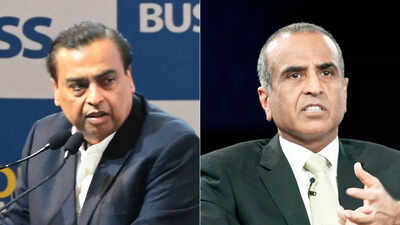Corporate Giants Clash Over Haier's India Business
In a move that highlights the intense competition between India's top business conglomerates, Reliance Industries Ltd (RIL), led by Mukesh Ambani, is now in the race to acquire a significant stake in Haier's Indian operations. This development pits RIL against a consortium including Sunil Mittal of the Bharti Group, echoing their rivalry in the telecom sector.

Haier Appliances India, currently trailing behind LG and Samsung, is looking to reduce its equity by 25% to 51%, seeking an Indian entity to become the principal shareholder. This strategy mirrors MG Motors' approach and is partly a response to global trade tensions, including Donald Trump's tariff policies, which have prompted Chinese companies to seek stronger local partnerships in India.
Valuation and Strategic Moves
Haier is aiming for a valuation of $2-2.3 billion, including a control premium. The company has engaged Citi to facilitate discussions with potential Indian partners, including family offices and private equity funds. The competition has seen several prominent groups, including a consortium led by Sunil Mittal with Warburg Pincus, entering the fray.

Reliance recently joined the competition, with its consultants directly communicating with Haier's headquarters in Qingdao. Unlike other contenders, Reliance prefers to proceed independently, leveraging its retail division for the potential purchase. This move aligns with Reliance's broader strategy to expand its footprint in the electronics sector, complementing its ventures in FMCG with brands like Campa Cola.
Market Dynamics and Future Prospects
Haier, which has seen a 33% increase in sales to Rs 8,900 crore in calendar 2024, aims to achieve Rs 11,500 crore in sales for 2025. The company is considering allocating 45-48% ownership to a local partner, with a small percentage reserved for Indian staff and regional distributors, while retaining the remainder. The final arrangement is expected to be finalized in the coming weeks.
This corporate battle not only underscores the strategic importance of the Indian market for global players but also highlights the shifting dynamics in international trade and investment flows, especially between China and India amid ongoing global tensions.









Comments